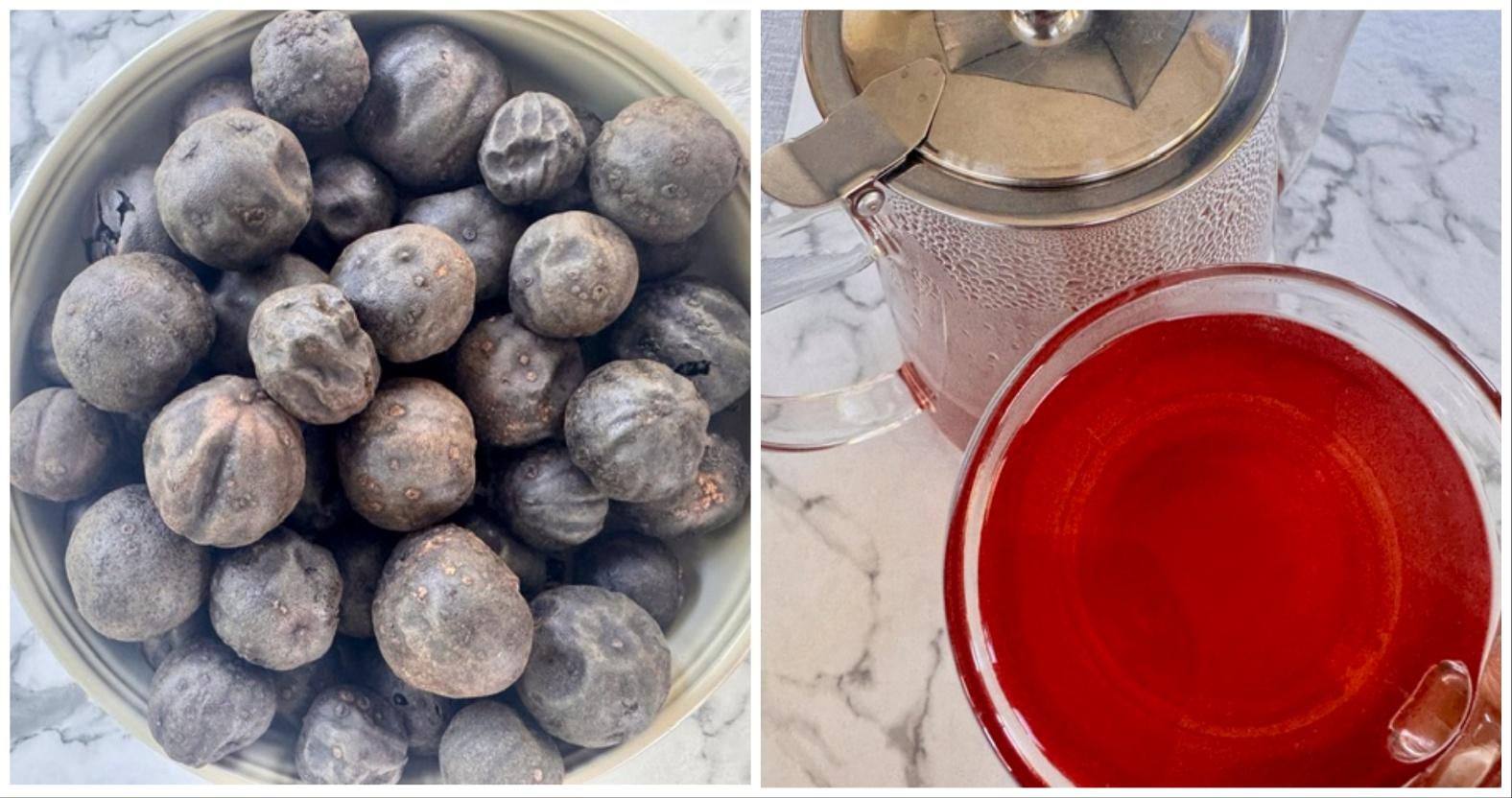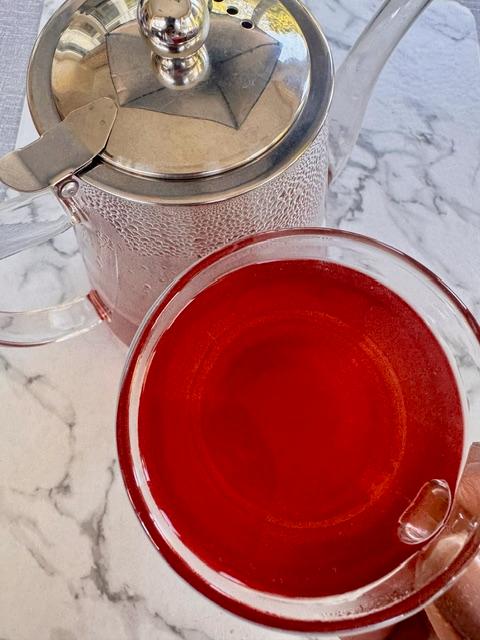Subscribe to trusted local news
If you are accessing this story via Facebook but you are a subscriber then you will be unable to access the story. Facebook wants you to stay and read in the app and your login details are not shared with Facebook. If you experience problems with accessing the news but have subscribed, please contact subscriptions@thestrayferret.co.uk. In a time of both misinformation and too much information, quality journalism is more crucial than ever. By subscribing, you can help us get the story right.
- Subscription costs less than £1 a week with an annual plan.
Already a subscriber? Log in here.
17
May 2025
Yemi's Food Stories: Black lime and hibiscus tea

Yemi Adelekan is a food writer and blogger who was a semi-finalist in the 2022 series of BBC TV’s Masterchef competition.
Every Saturday Yemi writes on the Stray Ferret about her love of the area’s food and shares cooking tips – please get in touch with her if you want her to review a restaurant, visit your farm, taste the produce you sell or even share a recipe.
There’s something electric about food festival season. It’s the energy, the aromas, the swirl of spices dancing through the air and the passionate food lovers. It’s seeing whole families, young loves and more leisurely retirees out for a great day. It’s the music that helps people to let loose as they move to the rhythm of music and the belting out of oldies. I love walking around food festivals to take in the atmosphere.
Over the next few Saturdays, I’ll be showcasing my food at three incredible festivals: South Manchester, Malton, and Living North in Newcastle. My demo dish for the Living North Food Festival will feature Gruyère cheese, but not in the way you’d expect. I’m pairing it with a zingy hibiscus oil dressing, black lime for depth, and a touch of chilli honey for a final kiss of heat. It’s bold, beautiful, and unapologetically flavour-packed.
I love this season. It’s my time to play, to knit flavours together from my travels and memories, and to help people fall in love with ingredients in ways they’ve never imagined. Take labneh, for example. Soft, tangy, creamy – it was in Israel that I first tasted it drizzled with olive oil and za’atar, mopped up with warm flatbread. Pure bliss. Now I make my own and swirl it with garlic, black lime and even saffron – as you may have seen in this column last week.

Black limes.
Or hibiscus. Most Nigerians know it from the deep ruby Zobo drink of Nigerian street markets – sweetened, spiced, and ice-cold. But what if I told you that same flower could be infused into oil to make a lip-smacking dressing? Hibiscus oil has a tart fruitiness and floral sharpness that dances on the tongue and it’s just the thing to cut through richness or wake up a roasted veg salad.
And then there’s black lime. I had my first proper encounter with it in Istanbul, where a spice seller at the bazaar gave me one to smell and it was love at the first sniff even though I didn’t have a clue how I would use it, there was no way I was leaving the place without them.
The smell was intoxicating: citrusy, fermented, smoky. It became my secret weapon. Ground black lime adds depth without overpowering, sourness without sharpness. It’s like lemon’s cooler, more mysterious cousin.
I have used it instead of lemon to finish my fish dishes. It’s reminiscent of getting a slice of charred lemon to squeeze on your smoked salmon starter. The depth of flavour from the charring far outweighs just squeezing a slice of fresh lemon, which I now consider to be a lazy garnish for a fish dish.
To showcase its flavour, a foodie friend told me to brew it into a tea. Here’s how to make my favourite version:
Black Lime and Hibiscus Tea
Ingredients
· 2 dried black limes
· 500ml water
· a few hibiscus petals or ½ tsp of dried hibiscus powder
· 1 tbsp honey (or date syrup for extra depth)
· a slice of fresh ginger (optional)
Method
Crack the limes slightly (just enough to release their flavour), simmer gently in the water for 10-12 minutes with the hibiscus. Sweeten to taste.
You’ll get a dark, earthy citrus tea with smoky undertones and beautiful colour that is calming, cleansing, and oddly addictive.

Calming, cleansing, and oddly addictive.
The challenge
Ingredients including pomegranate molasses, labneh, honey, fermented chillies, black lime and hibiscus are the stars of my demos, but they’re also reminders of a bigger message: that food is more than fuel. It’s memory. It’s culture. It’s a bridge between past and present, here and there.
So this week, I’m challenging you: go back to your pantry.
Look at your ingredients differently. That spice you’ve used one way for years? Try it another way. That herb you think only belongs in a stew? Toss it in a salad. Ingredients don’t have borders, we do. Sumac might be lurking in your cupboard and its citrusy notes also work well with fish.
As I get ready for these festivals, I’m reminded why I do this. I don’t just cook to impress – I cook to connect. With strangers, with friends, with memories of my aunties, grandmas and mother’s kitchens in Nigeria, and with the spice-sellers on stalls across Israel and Istanbul’s Grand Bazaar.
Food is one of the few languages everyone understands. Let’s talk.
0